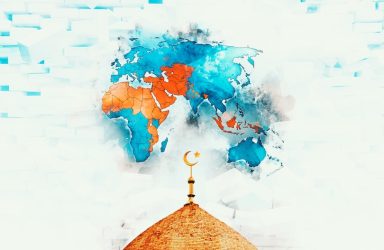The Securitization of the Iraqi Regime Using the Three Levels of Analysis
The three levels of analysis can explain why contention can emerge when political issues are securitized such as the securitization of the Iraqi regime and US invasion.
Global Governance of Maritime Piracy: Closing the Legal Gaps
The International Contact Group on Piracy Off the Coast of Somalia (CGPCS) is considered a successful example of global governance of maritime policy.
The Division of Palestine in 1947: Personal Policy or Strategic Interest?
The decision by the United Nations to partition Palestine in 1947 was a major watershed in Middle Eastern history. Not only did it lead to the creation of the state of Israel, a Zionist aim since the eighteenth century, but it set in stone a conflict which still to this day remains unresolved.Although the decision aimed to appease both Jews and Arabs, who laid differing ideological claims to the same territory and, as James L. Ilsley stated, was the ‘best of four unattractive and difficult alternatives,’ it failed.
Considering Cognitivism’s Contribution: Possibilities for Constructive Cooperation between Rationalist and Cognitivist Theorists of International Regimes
All but the staunchest realist would agree that international regimes form an important part of the emerging mechanisms of global governance. In tandem with the study of international relations, the study of international regimes has long been dominated by interest-based or neo-liberal theories – both rationalist schools of thought. However, not rightfully so.
Emerging Ethnic Hatred in Jonglei State, South Sudan
Trapped in an ethnic security dilemma, the Lou Neur and Murle in South Sudan have entered into an ethnic conflict in which they compete over scarce resources for cattle grazing.
How do Postmodernists Analyse International Relations?
Attempts to define the strand of postmodern theory in the field of contemporary international relations are often overwhelmed by the challenge of having ‘to make intelligible some of the different problematique, focii, and theoretical strategies’. As opposed to the analyses of traditional theoretical strands, which attempt to represent their approach as a coherent and unified theory, any analysis of the postmodern must be prepared to navigate what Lapid describes as a ‘confusing array of only remotely related philosophical articulations,’ which shelter beneath the ‘rather loosely patched-up umbrella’ of postmodernity.
Arab Contributions to Islamic International Relations: Why is There No Breakthrough in Theorizing?
Without a commitment to producing original knowledge, there is little hope of changing the status quo.
EU-US intelligence sharing post 9/11: predictions for the future
This research seeks to explore whether, and to what extent the intelligence sharing has increased between the US and the EU member states post 9/11, and to offer predictions on future trends. Different potential scenarios in future intelligence cooperation are presented, based on the threat of Islamic terrorism to the US and EU.
The ‘Nature’ of International Relations: From Geopolitics to the Anthropocene
The challenge is to find a way forward that does not revive geography as a condition of great power competition, but rather one that grapples with an Anthropocene IR.
‘Ungoverned Spaces?’ The Islamic State’s Challenge to (Post-)Westphalian ‘Order’
To what extent can we maintain that the Westphalian ‘order’ is stable and lasting given the recurring evidence of the existence of ‘rogue,’ ‘weak,’ or ‘failed’ states?




